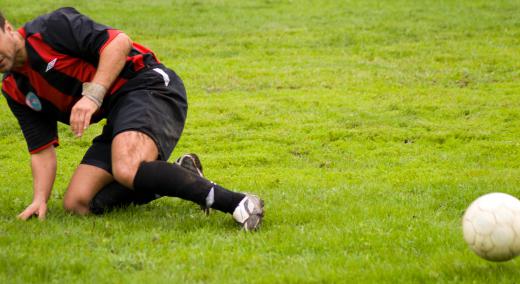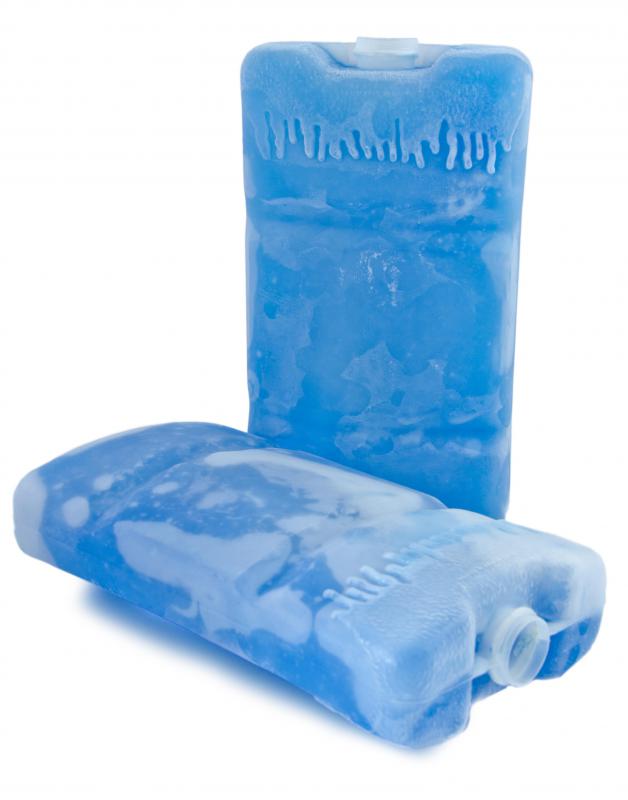At TheHealthBoard, we're committed to delivering accurate, trustworthy information. Our expert-authored content is rigorously fact-checked and sourced from credible authorities. Discover how we uphold the highest standards in providing you with reliable knowledge.
What are the Common Causes of Swelling Above the Knee?
Swelling above the knee can be caused by several conditions, the most common of which is an injury resulting from a direct trauma. Other conditions may include an injury to a ligament such as a knee sprain, bursitis, arthritis, or a strained muscle in the area. Swelling above the knee can be treated quickly and easily in many cases, but if it persists or worsens, or if it is accompanied by other symptoms, the injured person should seek a doctor's recommendation as soon as possible.
Certain types of arthritis can cause swelling above the knee as well as in the knee joint itself. This swelling occurs when the ligaments of a joint begin to wear out, allowing excessive movement in the joints. This excessive movement can lead to wear and tear on bones, muscles, and tendons, and swelling may result. There is, unfortunately, no cure for arthritis, but preventative measures can be taken to alleviate pain and slow the progress of the arthritis. This treatment may include the use of anti-inflammatory medications, painkillers, and exercise routines as well as regular stretching routines to keep the joints healthy and moving naturally.

A ligament sprain can lead to swelling above the knee, though not all sprains will cause swelling in this area. A sprain occurs when the ligaments that hold the bones of a joint together get stretched beyond their means. The tiny fibers of that ligament can tear, causing pain, swelling above or on the sides of the knee, and a loss of mobility. A torn ligament, or one that ruptures completely, will cause severe swelling and pain and may require a surgery to fix. Sprains rarely require any type of surgery, but are generally treated with the RICE treatment: rest, ice, compression, and elevation. The swelling should subside within a few days, and the pain will go away completely after several weeks. Such injuries often require physical therapy to rebuild the strength of the ligaments.

Muscle strains that are not directly associated with the knee can cause swelling above the knee. The quadriceps muscle is a long muscle that makes up part of the thigh, and when this muscle strains, swelling may occur. A muscle strain occurs in the same way that a sprain occurs in a ligament: the muscle is stretched beyond its means, and the tiny fibers that make up the muscle begin to tear, leading to swelling and pain. A muscle rupture occurs when the muscle tears completely away from itself or the tendons. This will lead to severe pain and swelling, and the injured person should seek medical attention immediately.
AS FEATURED ON:
AS FEATURED ON:
















Discussion Comments
After lifting up over 2 tons of ceiling and drywall, I aggravated my right knee to the point it swells up after just walking and I have sharp pains above my knee cap.
How do I treat swelling above the knee?
Post your comments